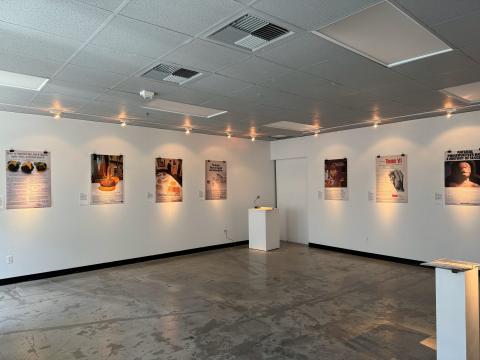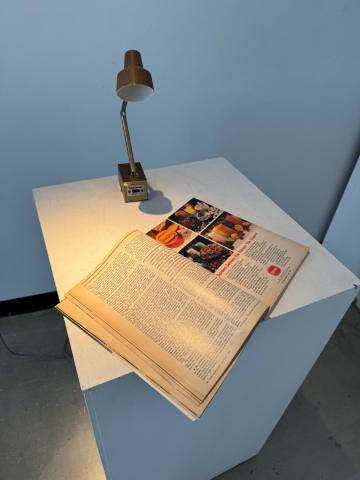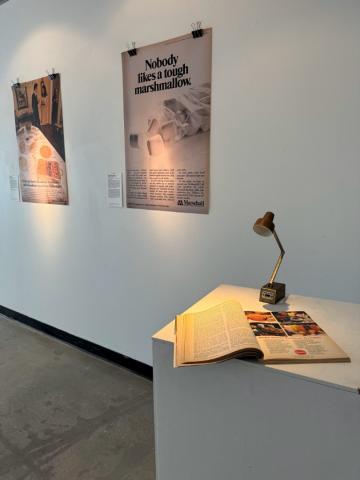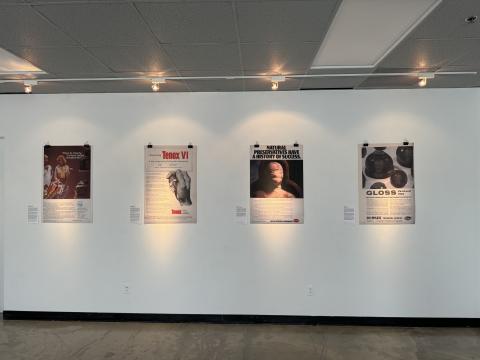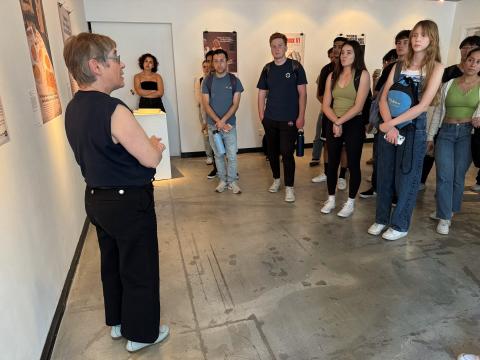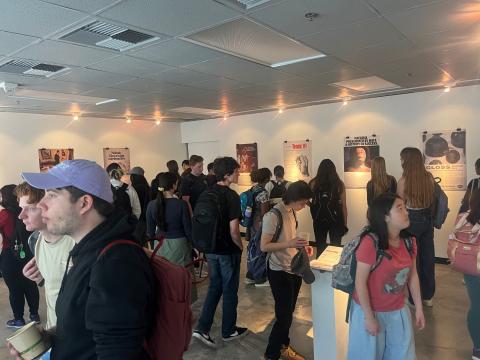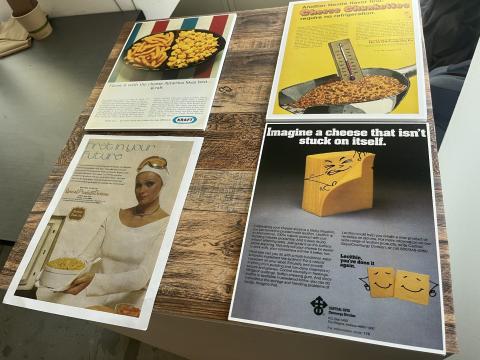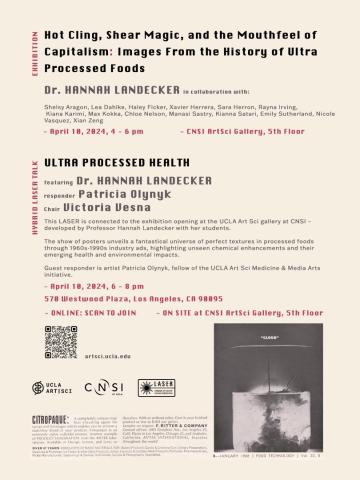Dr. Hannah Landecker’s exhibition at CNSI ArtSci Gallery
“Hot Cling, Shear Magic, and the Mouthfeel of Capitalism: Images From the History of Ultra Processed Foods”
April 10 - 17 at the ArtSci Gallery on the CNSI 5th floor. LINK to directions
In a set of advertisements exhumed from back issues of industry trade journals in food engineering from the 1960s through the 1990s, this exhibit explores the values and the chemistry of an otherworldly scene in which there are no lumps, inconsistencies, or bubbles. Emulsifiers, clouding agents, gums, thickeners, anti-foaming agents, and antioxidants ensure that the marshmallows remain eternally fluffy, the particles are all the same size, mixtures never separate, and the sauce stays on top.
Curated by the Hot Cling and Shear Magic Research Group, a team of UCLA undergraduates led by Professor Hannah Landecker, pied piper of the grim joy of historical excavation of apparently banal but terribly consequential social and technical events shaping our biological lives. The team, composed of undergraduates majoring in Human Biology and Society and Psychobiology, is comprised of Xian Zeng, Nicole Vasquez, Emily Sutherland, Kianna Satari, Manasi Sastry, Chloe Nelson, Max Kokka, Kiana Karimi, Rayna Irving, Sara Herron, Xavier Herrera, Haley Ficker, Lea Dahlke, and Shelsy Aragon.
Hannah Landecker, with a Ph.D. in Science and Technology Studies from MIT and a B.Sc. in Cell and Developmental Biology from the University of British Columbia, uses the tools of history and social science to study contemporary developments in the life sciences, and their historical taproots in the twentieth century.
She has taught and researched in the fields of history of science, anthropology and sociology. At UCLA she is cross-appointed between the Institute for Society and Genetics, and the Sociology Department. She is currently working on a book called “American Metabolism,” which looks at transformations to the metabolic sciences wrought by the rise of epigenetics, microbiomics, cell signaling and hormone biology.
Landecker’s work focuses on the social and historical study of biotechnology and life science, from 1900 to now. She is interested in the intersections of biology and technology, with a particular focus on cells, and the in vitro conditions of life in research settings.


